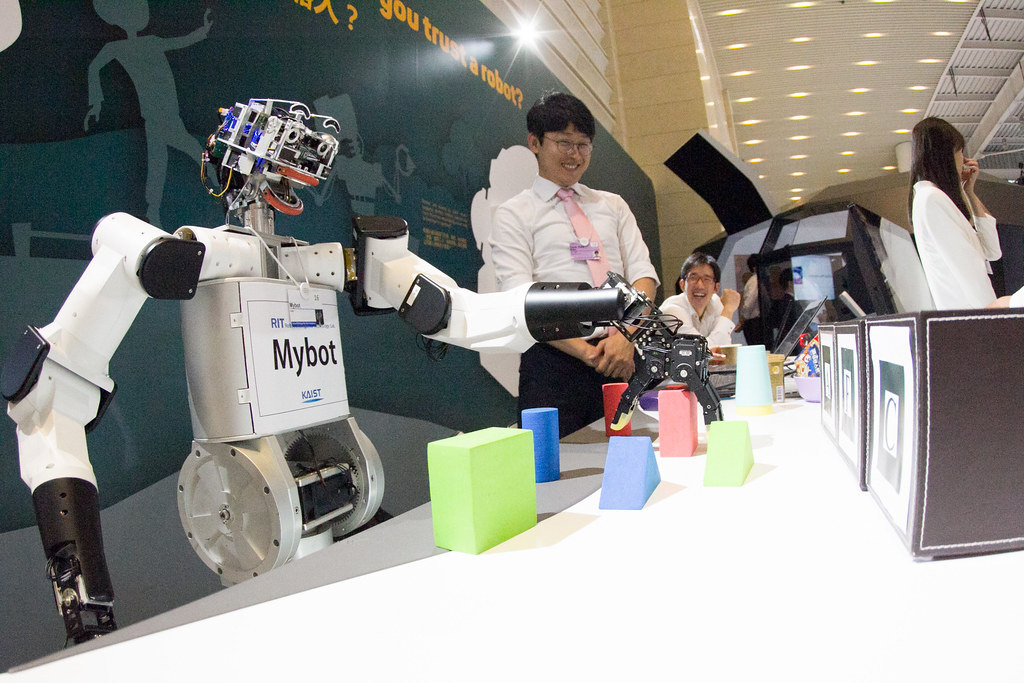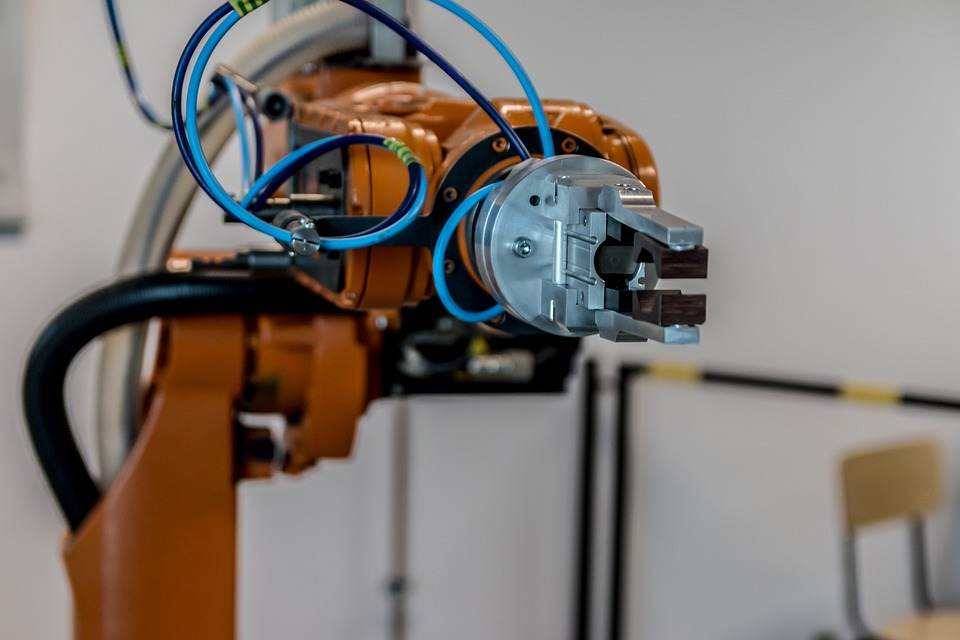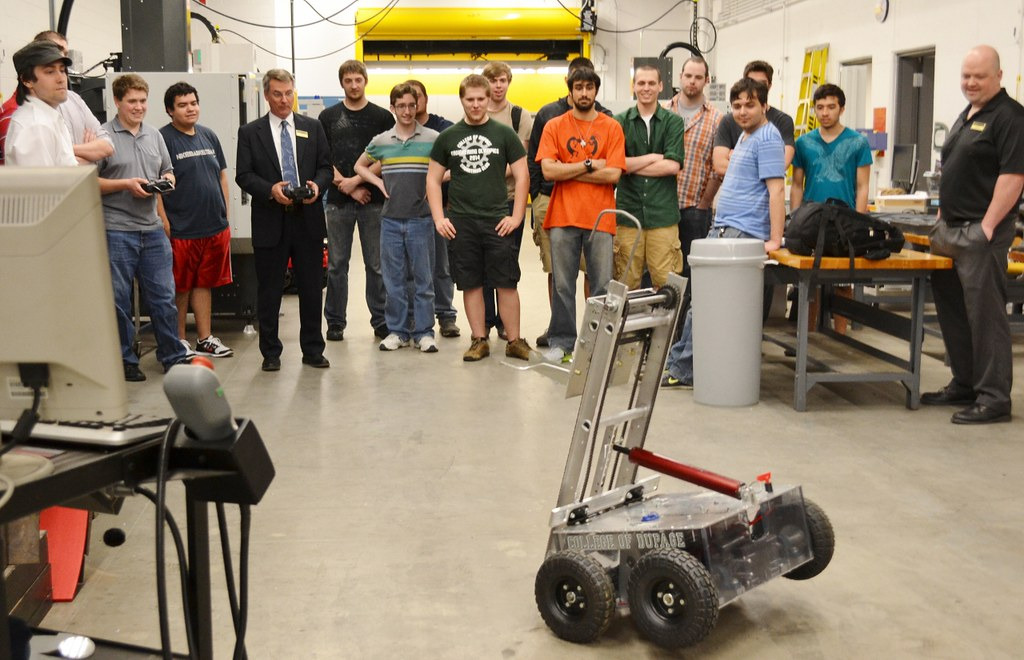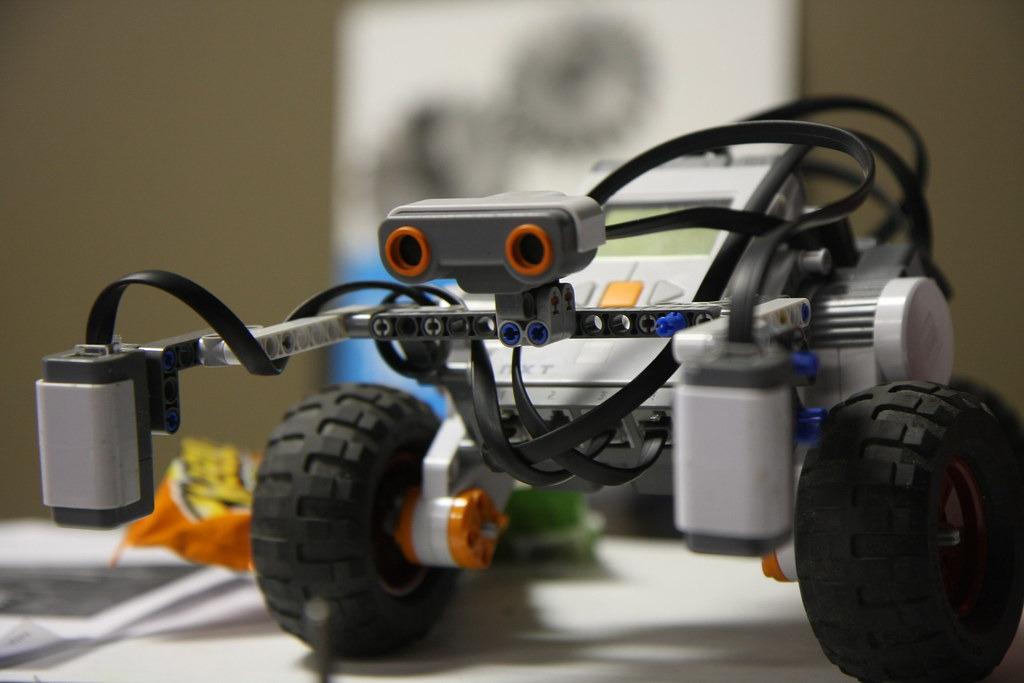Robotics has always been one of the popular topics in recent years. So, many people want to learn about robotics to develop the necessary skills in the field.
Whatever the purpose, the question of how to learn robotics must have at least once troubled you. This article has all the information you need to answer your question. Let’s get right into the details!
What Is Robotics?
Robotics focuses on designing, developing, and creating high-performance automatic machines to serve many fields.
Robotics combines computer science as well as mechanical and electrical engineering. Computer science algorithms will constitute machine processors. Electricity and mechanics will make up the robot’s frame and electrical circuits.
Today, robots are more than machines that can accomplish many repetitive tasks. They can also handle big data and interact with people.
Robots appear in all areas. The simplest models that are most accessible are robot vacuums, pet care device robots, and virtual assistants in smart homes.
More sophisticated versions with more advanced technology are in development. Currently, robotics that can interact with humans are self-driving vehicles as sensors, space exploration robots, and military drones.
How to Learn Robotics
Robotics is also a promising career and well worth pursuing. More specifically, all ages can start learning about robots.
Access, creativity, and mastery in this field will depend on each person. You will generally achieve success if you learn about robots by following the steps below.

1. Start with the basics
Basic robotics knowledge is essential. It will make it easier for you to get started in the field and continue to grow further.
Basic coding learning
Coding is required if you want to program robots. Basic knowledge like conditional statements, variables, and functions is essential to practice coding.
If you have yet to learn about coding, start with popular primary programming languages for robots like Python and C++. You can also take coding classes for detailed instructions.
Additionally, understanding data structures, algorithms, and control structures such as loops and conditional statements are important.
Familiarizing yourself with robotic frameworks such as ROS can also be beneficial. It’s important to start with simple projects and gradually increase difficulty to build a strong foundation in coding for robotics.
Practice, persistence, and a willingness to experiment and learn from mistakes are key to success in this field.
Physics knowledge
Building robots that can move and interact will require a specific physics understanding. Fortunately, there are quite a few ways you can learn physics independently. Online courses on the website will provide the most foundational knowledge in physics, math, and more.
Linear algebra
In addition to physics, you also need a linear algebra grasp to make complex robotics and develop further in this field.
Algebra plays a vital role in programming and robot code tuning. And the knowledge you use in this process is mainly introduced in high school, college, and other algebraic enrichment classes.
Learn about computer science
Robotics and computer science are closely related. To understand robotics deeply, you must have a computer science background. Not only studying computer science, but you also need to practice and learn new skills regularly.
Like the above knowledge, you can update your understanding in this field through websites and improve your learning with online courses.
2. Learn and build skills
After having the most basic knowledge, it’s time for you to delve deeper into robotics by continuing to research and practice in the field.
Start creating robots
The best way to solidify foundational knowledge and proficiency in robotics is to build the first machines yourself.
In the beginning, you may have difficulty using coding and math to get the model you want. However, you will enjoy this creative process if you have prepared basic robotics skills.
You can prepare a few expensive materials when making the first robot models. The ideal tool kits at this time are sold quite well at hardware stores, electronics, or online sales websites.
Only after you have had experience creating and assembling should you invest in materials to make complex models.
Sign up for online courses
Robotics is a rapidly evolving and changing field. Therefore, even though you are confident with your background knowledge, you should take advantage of opportunities to strengthen and improve your skills.
Robotics courses and seminars are often held online and in person. Depending on the purpose and current level, choose for yourself an appropriate method.
If you can’t find time to attend courses, you can also improve your knowledge by reading research papers and studying robotics and related fields.
Join some related clubs
A club gathering people who love robots will be a suitable environment for you to nurture and develop your passion.
The most significant benefit of joining the robot club is interacting with more experienced people to receive helpful advice.
Participating in club activities allows you to meet new people and form connections that could lead to new opportunities and collaborations. It could be beneficial if you consider pursuing a career in robotics, as you can connect with professionals already working in the industry.
Joining a robotic club can be a fun and challenging experience. Robotics involves creativity, technical knowledge, and problem-solving skills. You can stretch your abilities and learn new things by working on projects with other members.
Whether a beginner or an experienced roboticist, you can find a place in a club where you can grow and challenge yourself.
Even if you can’t find one in your area, why not try to set up an official robotic club? Indeed establishing a favorite club brings valuable experiences and lessons.
Participate and learn in competitions
Robot competitions allow you to meet many talented people in the same field. It is also an opportunity for you to introduce your project.
In particular, when participating in competitions, you will receive many shares and suggestions from experienced people. You even get detailed instructions on how to fix bugs and improve them.
Participating in robotics competitions keeps individuals up to date with the latest advances in the field. With technology development, staying up to date with the latest trends and innovations is very important for anyone in the robotics industry.
Participants can be exposed to new ideas and technologies that will shape the future of the field.
Taking part in robotics competitions is a great opportunity for individuals to work in teams and collaborate with others who share a passion for robotics.
It is a great way to build new relationships and make industry connections that can benefit individuals in their future careers. Teamwork can help individuals develop essential skills such as leadership, and communication.
3. Advanced robotics knowledge study

You’ll need to keep learning if you’re looking into robotics for more than just temporary interest but for a long-term commitment. Here are some key things you might consider for further development in this area.
Operating system research
Operating system-related knowledge will help you fix bugs and customize your projects. For starters, it is a rather complex area to reach. Robot operating systems require learners to be proficient in programming languages.
However, if you master this robotic software system, you can build highly complex machines. In particular, using the ROS operating system also helps you in the creative process without using a tutorial toolkit.
Trigonometry and statistics learning
Trigonometry and statistics are also necessary knowledge to build complex robots. Basic linear algebra knowledge is enough to build simple robot models without interoperability. With trigonometry and statistics, you will program robots more efficiently, creating models that can handle assigned tasks nicely.
Degree in robotics
If you want to develop a career in this field, a degree in robotics engineering is recommended. Completing a bachelor’s degree program in robotics and automation will enable you to master robot design, upgrade, and repair. You also have the background knowledge to further your research in the field.
In addition to majoring in robotics, you can pursue a mechanical engineering training program. This major also provides the necessary skills to build robots.
Tips for Getting Started With Robotics
Applying the robot learning path above will take time and effort. Especially for beginners, learning about coding and technical knowledge is a challenge.
And here are some tips you can apply to make learning about your robot easier.
1. Learn about electronics
You don’t have to be an electrical expert to learn about robotics. You can even build simple robot models without a deep understanding of electronics.
However, knowledge of this field is essential if you want to learn and develop your robot more simply.
It is easy to find sensors, motors, power supplies, and related components. But you must understand circuits, soldering, and multimeters to avoid mistakes.
You don’t have an EE degree to be a robotics expert. Yet, you’re better off taking electrical basics courses.
2. Reading books
Currently, it is easy to take robotics courses or access video resources. However, the book is still a helpful reference that anyone who learns about robots should be interested in.
The right books will be an invaluable reference to help you develop further in this field. Some exciting books like Robot Builder’s Bonanza or magazines like Robot or Servo will be great for beginners.
3. Join the robot group

You often join groups on social networking platforms to read exciting stories and connect with those around you. Why don’t you join robotics groups on Facebook or follow forums about this field on platforms like Twitter and Reddit?
As you follow the robotics news regularly through social media, you will be inspired to continue researching this field.
When you join online groups and forums, you can interact with people with similar interests. They can help you when you are in trouble.
4. Perseverance
Even if you’ve already made some progress in robotics, chances are you’ll still find this a subject to overwhelm you.
The key to further growth in this area is not to let the overwhelming discourage you. Whether you’re a beginner or an expert, have some persistence.
There are quite a few areas related to robotics that can confuse you, for example, programming and electronics.
Yet, when you find the learning style that works best for you and have the proper support, you can master the above knowledge.
5. Understand strengths
Another tip that will keep you interested in building and developing robotics is understanding your strengths.
Robotics is a broad field. And you can completely invest your time and effort in certain areas instead of trying to hone all the skills.
For example, many technicians are excellent in software engineering but could be better at manipulating electronics.
FAQs
How can I start to learn robotics?
If you have never been exposed to and are knowledgeable about robots, start with computer science, coding, or math knowledge. Once you’ve got the basics, enroll in robotics refresher classes and practice by participating in competitions.
Is it hard to learn robotics?
Robotics isn’t a simple field. Especially if you are a beginner, you may need help.
Many platforms nowadays can help you learn about robots quickly. Some online resources include Arduino, Raspberry Pi, and Python.
How can I teach robotics at home?
You can teach robots at home through Scratch, code.org, or code combat. These online platforms will support building and simulating robots without requiring too powerful hardware.
Is Python enough for robotics?
Python is a programming language that is widely available with robots. It is also helpful to learn about computer science and machine learning.
Should I learn robotics or C++?
C++ is a suitable language for building and developing robots for beginners.
Conclusion
Hopefully, through this sharing, you have learned how to learn robotics as well as built a practical learning and research path to develop in this promising field.
The article has answered your questions about this field and given you many valuable tips. Thanks for following!

